Serafine Dinkel
GEM-DIAMOND doctoral fellow
ESR 15 – Impact of competing models on the EU’s political conditionality in a turbulent neighbourhood
Serafine is a Marie Skłodowska Curie Fellow at the Université libre de Bruxelles, the University of Warwick and the University of Amsterdam. Her research focuses on EU enlargement and neighbourhood policy, and EU relations with Georgia and Serbia.
EU Norms Promotion in Geopolitical Context. A Comparative Perspective on EU Conditionality in Georgia and Serbia
Supervisors
- Seda Gurkan
- Ozlem Atikcan
- Guido Snel
Research abstract
This research is particularly relevant in light of post-2022 shifts in EU external governance. The allocation of candidate status to three Eastern Partnership countries, including Georgia, following Russia’s full-scale invasion of Ukraine, constituted a shift impacting not only new candidates but also long-waiting ones in the Western Balkans.
These developments occur in a broader context where democratic norms are increasingly challenged, both within the EU and its neighbourhood. Many of the countries it attempts to bind to itself have experienced stalled or reversed democratization during the accession process. This trend does not unfold in isolation but is embedded in a global context. External powers, through coercion and disinformation, attempt to shape domestic political structures in countries the EU aims to integrate.
However, external influences only partly explain the trajectory of EU approximation. Domestic actors ultimately determine how such pressures play out. This brings the focus back to my central hypothesis: that institutional approximation with the EU does not ensure the adoption of EU political norms. Rather, these norms, the process itself, and even the EU orientation are frequently contested by domestic governments in target countries. Understanding how such contestation intersects with both internal governance dynamics and external pressures provides deeper insight into the EU’s evolving international role and the future of a democratic, enlarged Union.
Her published research focuses on EU external governance and strategy, EU enlargement policy and German foreign policy. As part of her PhD, Serafine is a resident fellow at the German Marshall Fund of the United States (GMFUS). She was also an Associate Fellow at the German Council on Foreign Relations (DGAP).
Prior to her PhD, she contributed to a high-level strategy project focusing on the EU’s capacity to act at the German Council on Foreign Relations (DGAP). She also worked as a Blue Book Trainee at the European External Action Service, as a researcher at the NATO Parliamentary Assembly, and served as a research assistant at the Chair of European and International Politics at the University of St. Gallen.
Serafine holds an MA in international security from Sciences Po Paris and an MA in international affairs and governance from the University of St. Gallen, as well as a BA in social and political sciences from Sciences Po Paris’ Franco-German program.
with Tena Prelec. 'Policy-Oriented Research.' [forthcoming]. In Coman, Paternotte and Ponjaert (eds.), Handbook on Impact in Social Sciences.
'Mapping Multilevel Dissensus: unpacking internal and external dissensus on EU enlargement policy.' [forthcoming]. In Coman, Levrat and Ponjaert (eds.). Dissensus over liberal democracy: actors, policies, and institutions.
'Teaming Up to Compete: How the EU and the United States Can Manage Geopolitics In the
Western Balkans'. 2024, Dec 20. German Marshall Fund of the United States.
https://www.gmfus.org/news/teaming-compete-how-eu-and-united-states-can-manage-geopolitics-western-balkans.
'In Georgia, the Future of Democracy is on the Ballot.' 2024, Oct 15. with Elene Kintsurashvili. German
Marshall Fund of the Unites States.https://www.gmfus.org/news/georgia-future-democracy-ballot.
Overcoming Geopolitical Enlargement Anxiety. Internationale Politik Quarterly (2023, Dec 4). https://ip-quarterly.com/en/overcoming-geopolitical-enlargement-anxiety.
Europas Verantwortung in der Welt. Eine deutsch-nordisch-baltische Perspektive [Europe’s responsibility in the world. A German-Nordic-Baltic perspective]. Integration 1/23. doi.org/10.5771/0720-5120-2023-1-59.
Dinkel, Serafine, Schirwon, Dana and Stamm, Leonie. Integrating Feminist Foreign Policy Into the National Security Strategy (2022, Jul 27). German Council on Foreign Relations, DGAP Policy Brief 20. https://dgap.org/en/research/publications/defining-feminist-foreign-policy-germanys-national-security-strategy.
Dinkel, Serafine, Kirch, Anna-Lena and McQuay, Mark. Towards an Inclusive Europe, Inside and Out (2022, May 16). DGAP Online Commentary. https://dgap.org/en/research/publications/toward-inclusive-eu-inside-and-out.
Dinkel, Serafine. Buzzword Bingo in EU Security: Why “Resilience” Risks Becoming the New “Strategic Autonomy” (2022, Jan 25). DGAP Online Commentary. https://dgap.org/en/research/publications/buzzword-bingo-eu-security.
Dinkel, Serafine. (2021, Jan 3). Nordische Resilienz lernen [Learning Nordic Resilience]. Internationale Politik Special Nr. 2/ 2022. https://internationalepolitik.de/de/nordische-resilienz-lernen.
Parkes, Roderick, Schimmel, Florence, and Dinkel, Serafine. (2021, Dec 8). Strategic Compass: Petals Worth Adding to its Rose. TEPSA Recommendations 2021. http://www.tepsa.eu/wp-content/uploads/2021/12/TEPSA-Recommendations-to-the-French-Presidency-final-3.pdf.
Kirch, Anna-Lena, Dinkel, Serafine, and Kabisch, Fanny. (2021, Dec 7). Municipal Foreign Policy. Resilient Cities Foster Germany’s Capacity to Act. DGAP Memo No. 16. https://dgap.org/en/research/publications/municipal-foreign-policy.
Dinkel, Serafine and Gelhaus, Laura. (2021, Oct 1). Geopolitics in Europe’s Neighborhood: New Strategies for the Western Balkans and Eastern Partnership. DGAP Memo No. 11. https://dgap.org/sites/default/files/article_pdfs/DGAP-MEMO-BTW21_11_EN.pdf.
Parkes, Roderick, Kirch, Anna-Lena, and Dinkel, Serafine. (2021, Jul 2). Building European Resilience and Capacity to Act: Lessons for 2030. DGAP Report No 13. https://dgap.org/en/research/publications/building-european-resilience-and-capacity-act.
Invited Talks (selected)
- TEPSA Academy on EU enlargement, June 2024
- IRSEM conference on external influences in the Western Balkans, June 2024
- EU foreign policy after the EU parliamentary elections, University of Passau, July 2024
Media (selected)
- Interview with La Libre on Georgian elections, December 2024
- Talkshow 'Brussels my love', Euronews, October 2024
-
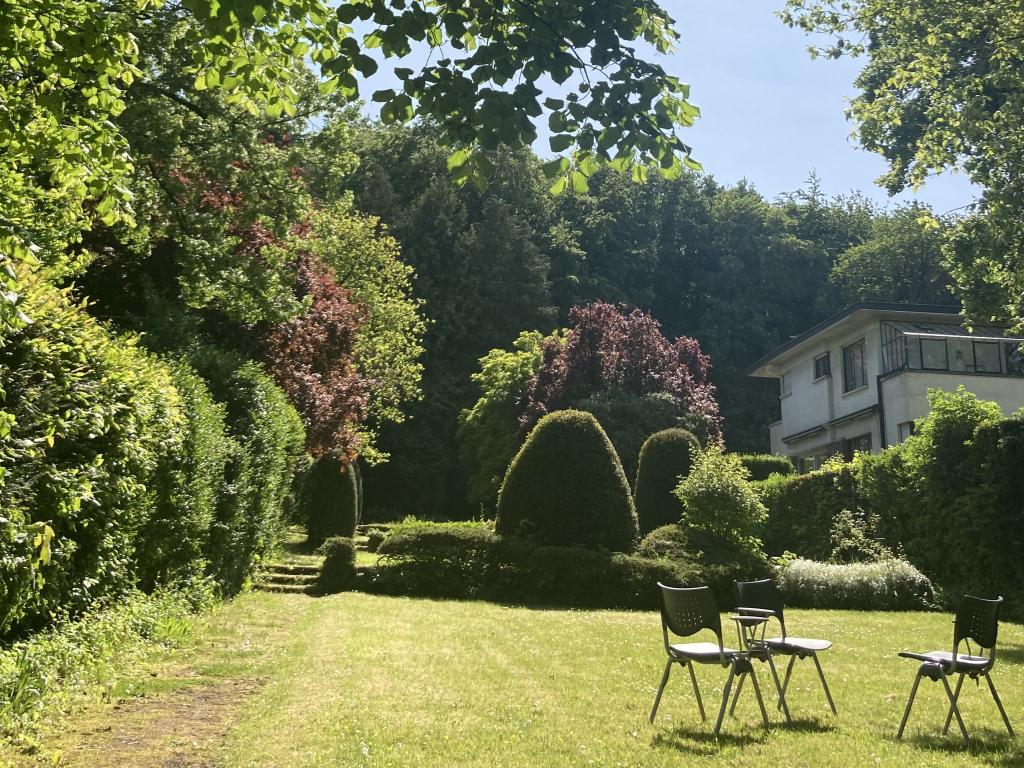
17 Telltale Sign You're an Academic Who Needs to Go on Summer Break
29 July 2025
If you're not sure whether you're an Academic Who Needs to Go on Summer Break, here's your checklist.
-
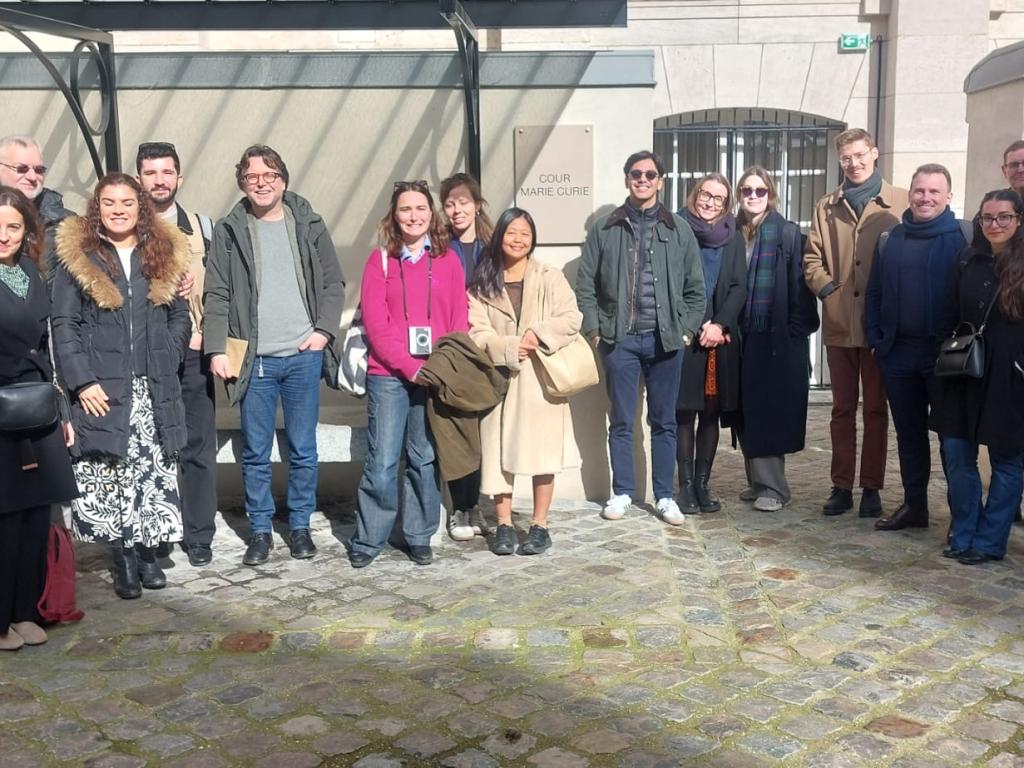
The road towards an edited volume: GEM-DIAMOND’s book project on dissensus over liberal democracy
15 March 2025
GEM-DIAMOND gathered to work on the book: 'Dissensus over liberal democracy: actors, policies, institutions'. By Serafine Dinkel & Adalgisa Martinelli
-
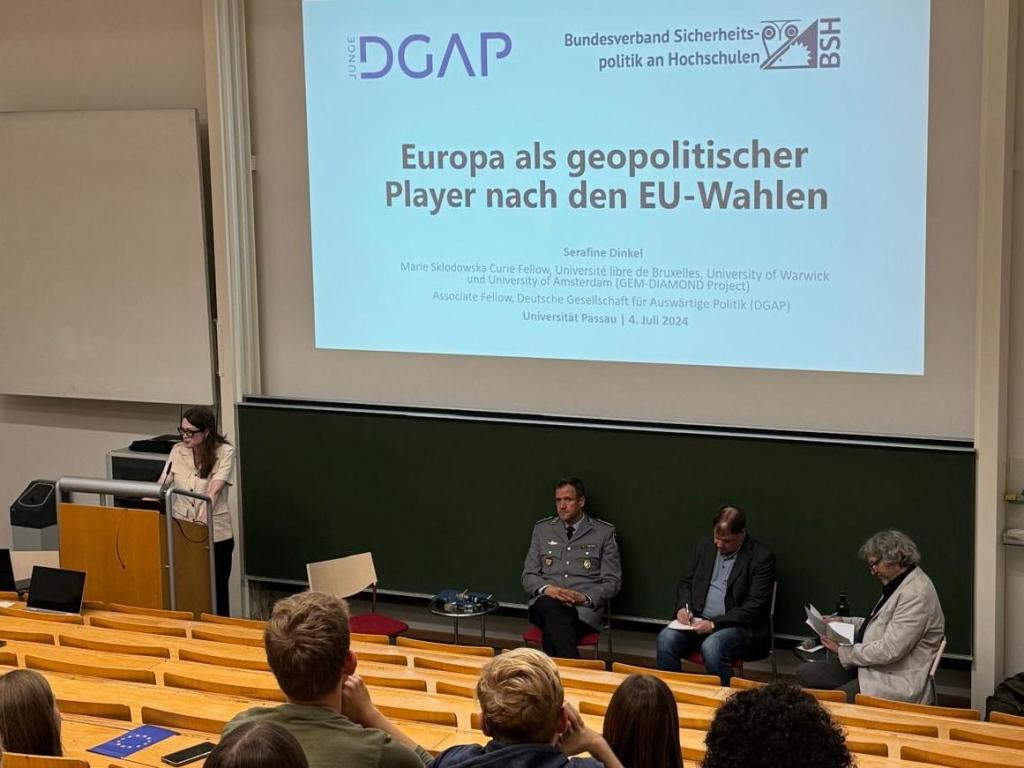
Future Directions: The EU as a Geopolitical Player in the New Institutional Cycle
29 July 2024
Serafine Dinkel gave a keynote speech and attended a panel discussion at the University of Passau.
-
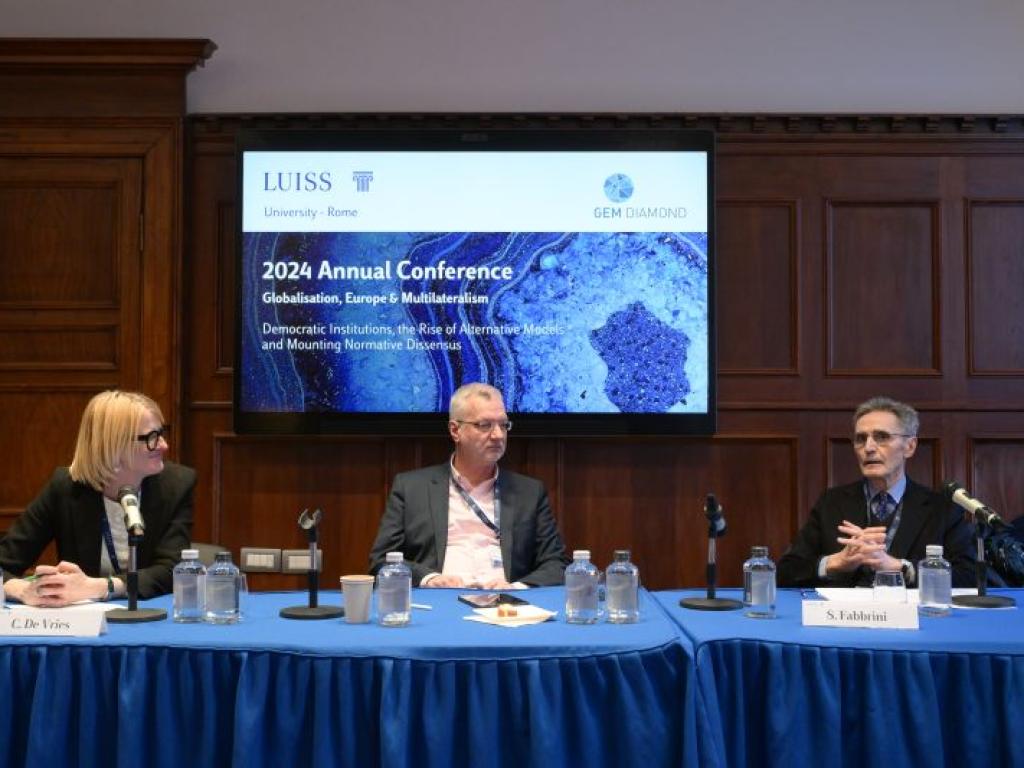
Delineating future dissensus: perspectives on the European elections
23 April 2024
Two fellows - Larissa Böckmann and Serafine Dinkel - join forces to reflect on the upcoming European elections
-
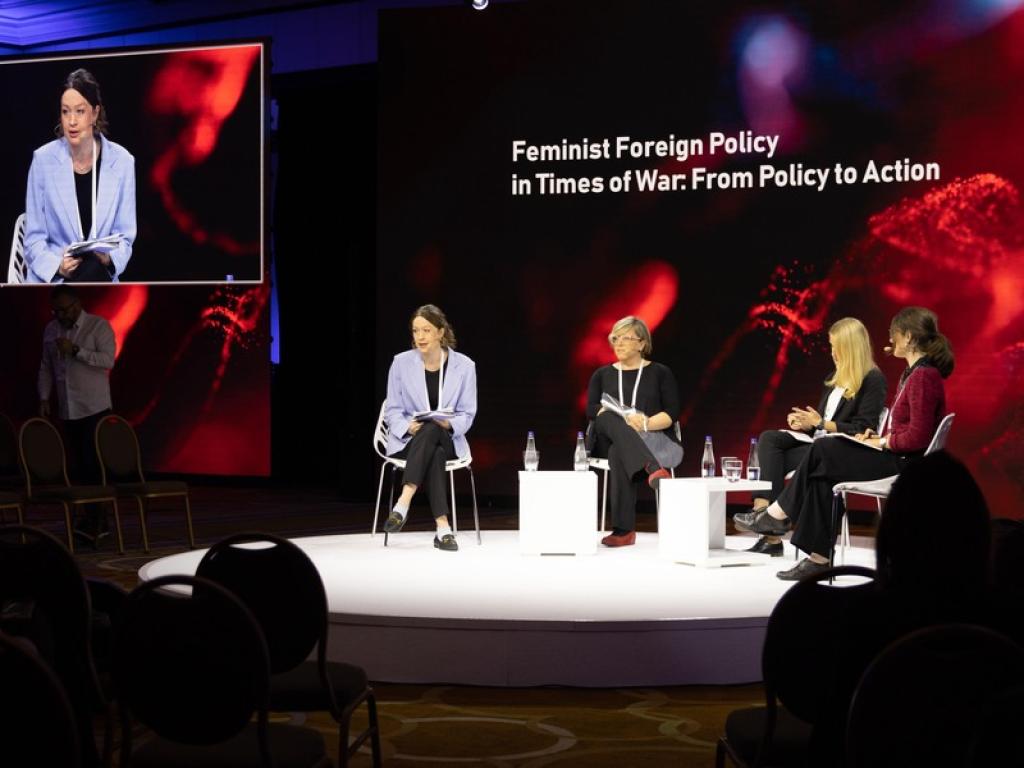
Feminist Foreign Policy in Times of War: Insights from the Belgrade Security Conference
21 October 2023
Serafine Dinkel discussed "Feminist Foreign Policy in Times of War" at Belgrade Security Conference 2023
-
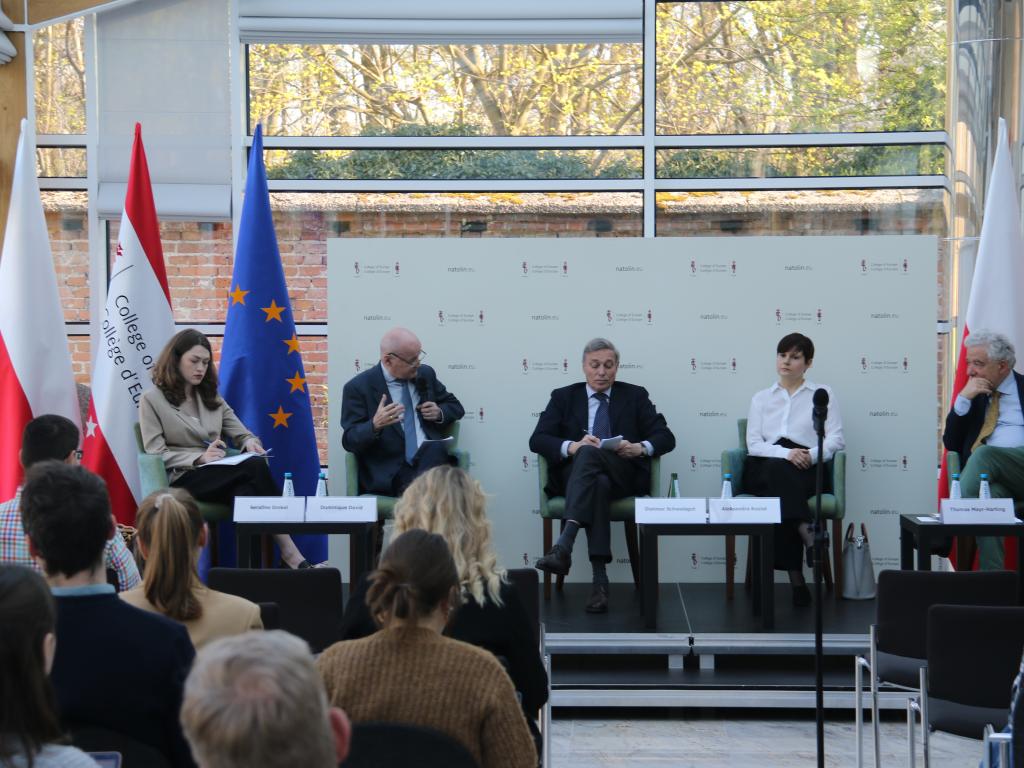
Pushing, shifting and pulling: the EU is recalibrating its geopolitics
26 April 2023
GEM-DIAMOND Fellow Serafine Dinkel analyses EU geopolitics following a recent publication and panel discussion at the College of Europe
-
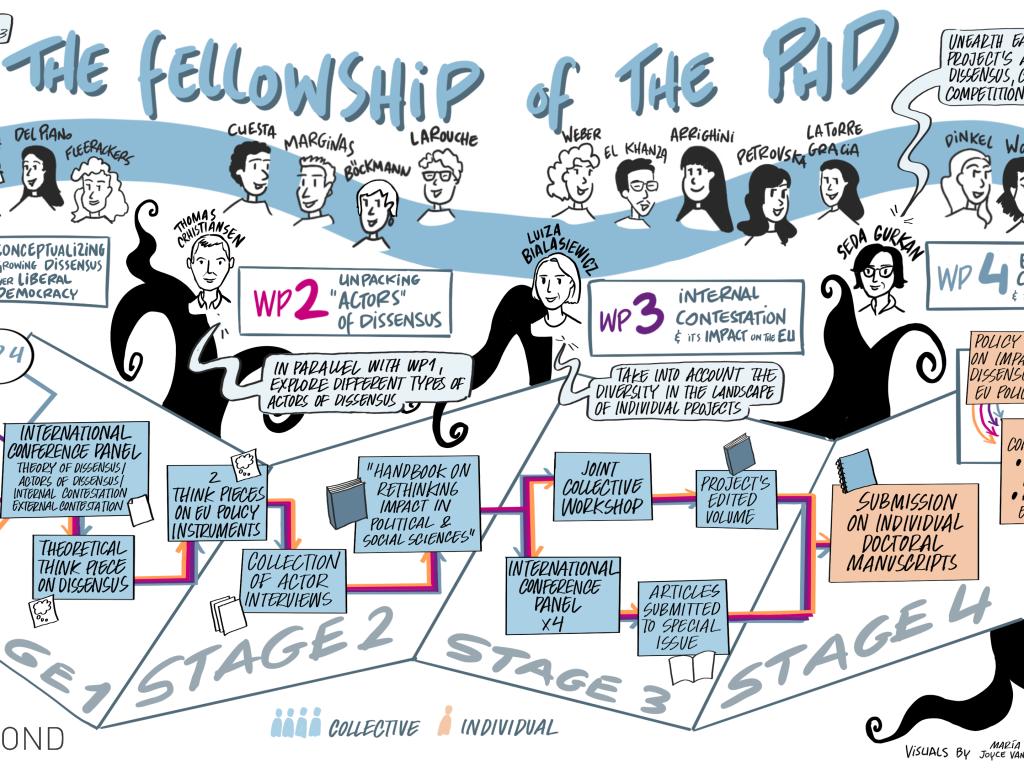
Birth of the GEM-DIAMOND Fellowship of the Ph.D.
1 October 2022
16 MSCA Fellows successfully selected following a gruelling selection process.



